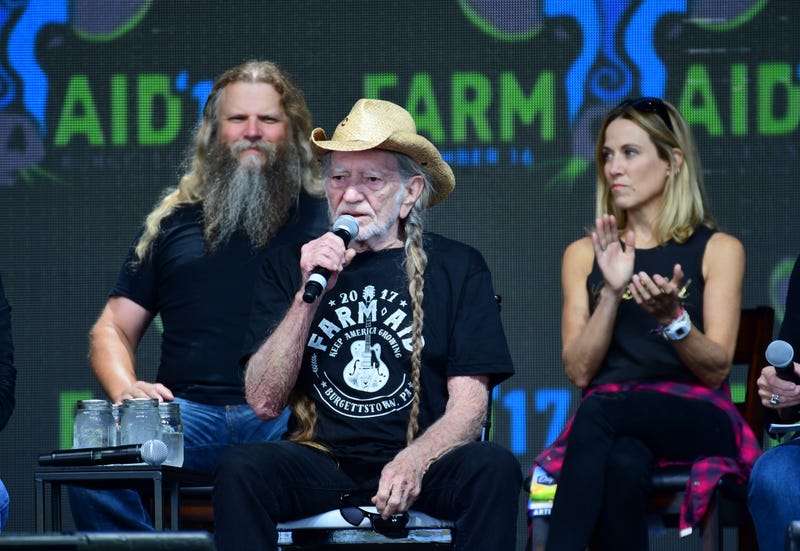
MINNEAPOLIS (AP) — Farm Aid — the annual fundraising concerts launched by Willie Nelson, Neil Young, and John Mellencamp during the farm crisis of the 1980s — celebrated its 40th anniversary on Saturday in Minneapolis.
The star-studded festivals are still raising public awareness of the challenges facing family farmers, and assisting struggling producers connect with help.
Nelson, who closed out the show early Sunday morning, is now 92, Young is 79 and Mellencamp is 73, but they’re still going strong.
Bob Dylan, 83, made his first performance on the U-of-M campus since 2008, when he played at nearby Northrup Hall.
Others taking the stage at the University of Minnesota’s football stadium were Dave Matthews,Margo Price,Kenny Chesney,Wynonna Judd, and Nathaniel Rateliff.
This year’s concert comes at a worrying time for American farmers.
Farm profitability has been falling.
Crop prices are low while production costs are rising.
And the Trump administration’s trade wars have added to the insecurity.
China has not bought any of the 2025 U.S. soybean crop so far and has turned to America’s competitors, such as Brazil, to meet its needs.
A labor dispute nearly derailed the festival this year.
Organizers said they would not cross the picket lines of striking teamster service workers at the university, saying “the farm and labor movements are inseparable.”
Nelson got on the phone with Governor Walz, who vowed to "get 'er done."
The university and union reached a deal late last week.
“The Governor knows how important this event is to farmers and farm country,” Walz spokesperson Claire Lancaster said. “He worked with all parties involved, including Willie Nelson, to find a solution.”
Walz himself took the stage late Saturday to introduce Nelson and his family.
Farm Aid oraganizers were thrilled.
“For four decades, Farm Aid has stood with farmers and workers,” organizers said in a statement that called the agreement “a reminder of what can be achieved when people come together in the spirit of fairness and solidarity.”
This will be the ninth Farm Aid for Rateliff, who said he joined because he has long felt a connection to farming and the land.
“I grew up in rural Missouri, and grew up with agriculture around me, and we didn’t have much money as a family,” Rateliff recalled in an interview. “So we had a huge one-acre garden, and my mom canned a lot of stuff, and my dad and I would hunt squirrel and rabbit and deer and whatever else we could eat.”
Jennifer Fahy, Farm Aid’s co-executive director, said the founders never expected 40 years ago that they would be able to raise enough money to pay off all the debts and solve all the other problems of struggling farmers.
She said their bigger hope was to foster systemic solutions.
“Farm Aid was kind of the first rallying point for farmers publicly,” Fahy recalled. “It was the first time that farmers would reach out and call a number.”
